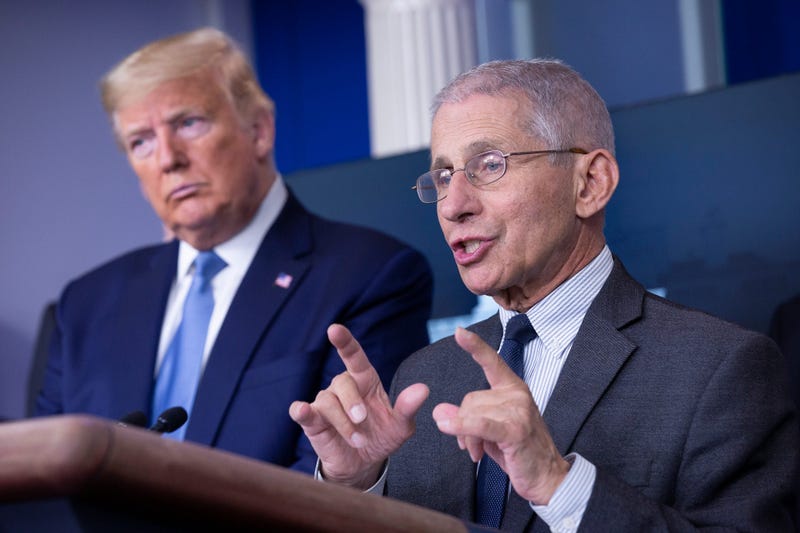
Washington, DC (AP/WBEN) - “We can’t have the cure be worse than the problem.”
That was the refrain from President Donald Trump, who said Monday that he wants to reopen the country for business in weeks, not months, as health and economic experts begin to butt heads.
“We can’t shut in the economy. The economic cost to individuals is just too great,” Larry Kudlow, Trump’s top economic adviser, said in an interview Monday on Fox News Channel.
Other economists warned that if Americans return to work too soon, there could be recurring outbreaks that would only worsen a recession. But if the period of isolation continues for too long, there will be a steep cost in trying to restart and sustain economic growth.
Joe Brusuelas, chief economist at the consultancy RSM, said lifting restrictions after 15 days would be “potentially a profound policy mistake” because it could lead to a second or third wave of outbreaks that would do even more harm to economic growth.
Analysts at Morgan Stanley estimated Monday that the economy will shrink at a record-breaking annualized pace of 30% in the second quarter. The unemployment rate would surge to 12.8% — the highest level ever in data that go back to the 1940s. But this forecast assumes the outbreak peaks in late April, after which there would be fewer reasons to restrict economic activity, and a sharp rebound would begin in the June-August quarter, leading to solid growth in 2021.
Top congressional and White House officials emerged from grueling negotiations at the Capitol over the nearly $2 trillion coronavirus rescue package saying they expect to reach a deal soon.
The package would be larger than the 2008 bank bailout and 2009 recovery act combined.
Democrats are holding out as they argue the package is tilted toward corporations and should do more to help suddenly jobless workers and health care providers with dire needs.
In particular, Senator Chuck Schumer wants constraints on the largely Republican-led effort to provide $500 billion for corporations, which Democrats have called a “slush fund.” Schumer wants the bill to limit stock buy-backs, CEO pay and layoffs.
The amount of money is large, but not necessarily aimed at long-term relief.
Ed Hutton, Director of the Financial Markets Lab at Niagara University, told WBEN that the stimulus package seems to be geared toward a shut down that extends past the “weeks” marker.
“The timeframe seems to be in the 60-day range,” said Hutton.
The stimulus package would include cash payments to most Americans, as well as mortgage and student loan payment help.
“The more we do now, the better,” said Congressman Brian Higgins about the stimulus package. “That said, we have a public health crisis we have to deal with first and foremost.”
“I know that we should be listening to public health experts,” Higgins said. “There will be plenty of time to fix this economy… the one thing we don’t have is a treatment to deal with this disease.”
“I’m concerned that some of these (public health experts) are being marginalized.”
Can health and economic policy coexist?
"They have to," said Congressman Tom Reed.
